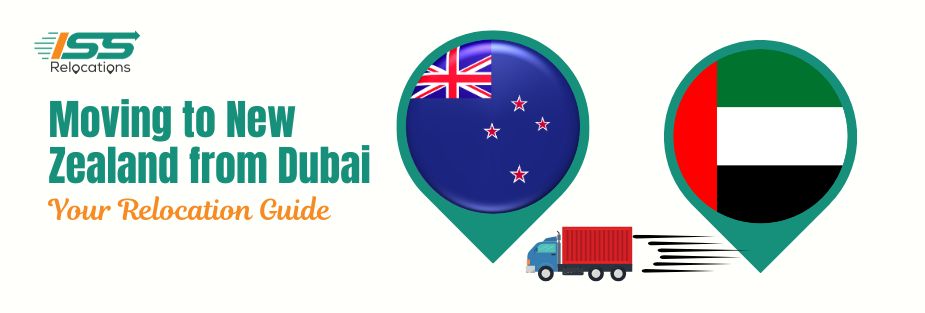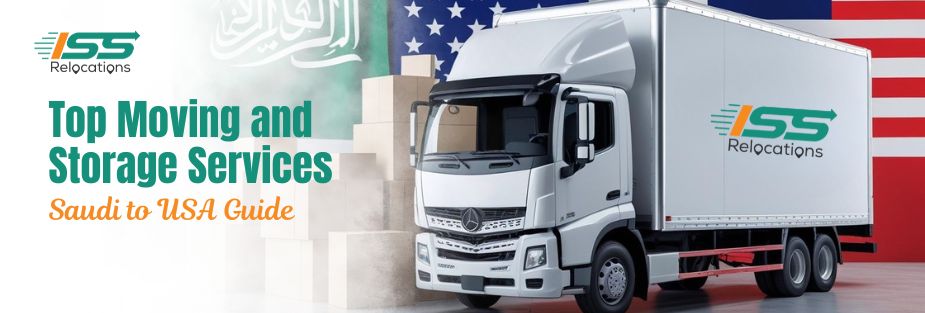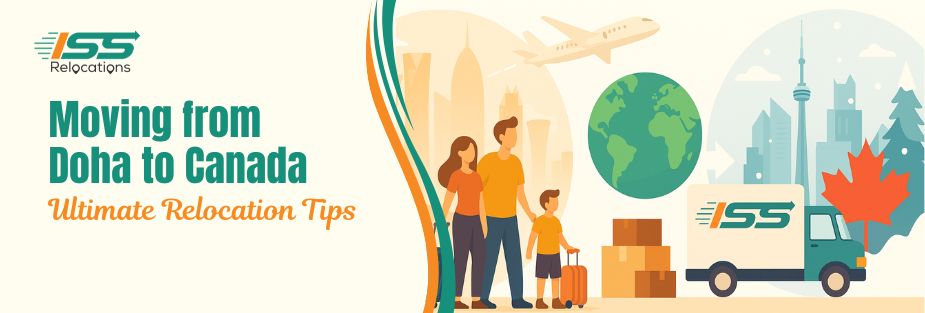
Relocation Services to Switzerland – What to Expect
Switzerland, with its picturesque landscapes, high quality of life, and robust economy, stands as one of the most attractive destinations for those considering relocating. Whether you’re drawn by its education system, excellent healthcare, or the allure of a stable and prosperous environment, moving to Switzerland promises a wealth of opportunities and experiences. However, navigating the relocation process can be complex and overwhelming.
Understanding every aspect of your move is crucial, from the initial planning stages to settling into your new home. This is where ISS Relocations comes in, offering comprehensive and personalized relocation services to ensure a seamless transition. With our expertise and support, you can focus on the exciting prospects that await you in Switzerland while leaving the logistics and complexities to the professionals.
Preparing for the Move
Relocating to Switzerland involves thorough preparation and planning to ensure a smooth transition. Here’s a step-by-step guide to help you get ready for your move:
Research and Planning
Importance of Thorough Research
Before making any big move, it’s essential to conduct comprehensive research about your new destination. Understanding the local culture, language, and lifestyle will help you adapt more quickly and feel more at home in Switzerland. Researching different cities and regions can help you decide where to live based on factors like job opportunities, cost of living, and personal preferences.
Utilizing Resources Like ISS Relocations
Partnering with a reliable relocation service like ISS Relocations can make the planning process much more manageable. They offer a wealth of resources and personalized guidance to help you navigate the complexities of moving to a new country. From initial consultations to tailored relocation plans, ISS Relocations ensures that every aspect of your move is covered.
Documentation and Legal Requirements
Visa Types and Permits
One of the first steps in relocating to Switzerland is securing the necessary visa and permits. Switzerland offers several types of visas depending on your purpose of stay, such as work visas, student visas, and family reunification visas. It’s important to determine which visa category applies to your situation and begin the application process well in advance.
Essential Documents Needed
To apply for a visa and subsequently a residence permit, you’ll need to gather several key documents, including:
- Valid passport
- Employment contract (for work visas)
- Proof of accommodation in Switzerland
- Health insurance coverage
- Financial statements to prove financial stability
- Passport-sized photographs
- Completed visa application forms
Role of ISS Relocations in Assisting with Paperwork
Handling the paperwork and legal requirements can be daunting, but ISS Relocations offers comprehensive support to simplify the process. Their experienced team can assist with gathering necessary documents, filling out application forms, and liaising with Swiss authorities on your behalf. This ensures that all your paperwork is in order, reducing the risk of delays or complications.
What is the cost of living in Switzerland?
Housing Costs: Renting vs. Buying
Housing is one of the most significant expenses in Switzerland. Rental prices can vary greatly depending on the city and type of accommodation. Major cities like Zurich and Geneva tend to have higher rental costs, while smaller towns and rural areas are more affordable. If you plan to stay long-term, you might also consider purchasing property, though this comes with its own set of regulations and costs.
Utility Costs
Utilities such as electricity, heating, water, and internet are additional costs to consider. Switzerland is known for its high quality of services, but these can come at a higher price compared to other countries. On average, utility costs can range from CHF 150 to CHF 300 per month, depending on the size of your household and consumption habits.
Groceries and Dining Out
Food expenses can also be relatively high in Switzerland. Shopping at local markets and discount supermarkets can help manage grocery costs. Dining out is generally more expensive, but Switzerland offers a wide range of dining options, from budget-friendly eateries to high-end restaurants.
Transportation Costs
Switzerland has an excellent public transportation system, which is both efficient and reliable. Monthly transportation passes vary in price depending on the region and services included, typically ranging from CHF 70 to CHF 200. If you prefer to drive, keep in mind the costs of fuel, insurance, and vehicle maintenance.
Healthcare and Insurance Costs
Healthcare in Switzerland is of high quality, but it comes at a cost. Health insurance is mandatory, and premiums can vary based on the coverage plan and provider. On average, monthly premiums can range from CHF 300 to CHF 500 per person. It’s crucial to factor these costs into your budget when planning your move.
Overall, the cost of living in Switzerland can be high, but it is balanced by the country’s high wages and excellent quality of life. By planning ahead and budgeting appropriately, you can manage these expenses effectively. ISS Relocations can provide detailed cost analyses and budget planning to help you prepare financially for your new life in Switzerland.
Relocation Services to Switzerland?
Begin Your Stress-Free Relocation Journey Today – Request A Quote Now!
Finding a Place to Live
Securing suitable accommodation is one of the most critical aspects of relocating to Switzerland. Whether you prefer urban living or a quieter suburban environment, finding the right home can significantly impact your overall experience in your new country.
Choosing the Right Location
Popular Cities and Regions for Expats
Switzerland offers a range of cities and regions that are popular among expatriates. Here are some key locations to consider:
- Zurich: As Switzerland’s largest city, Zurich is a major financial hub with a vibrant cultural scene. It’s ideal for those seeking career opportunities in finance, technology, and consulting.
- Geneva: Known for its international organizations, including the United Nations, Geneva attracts a diverse expatriate community. It’s perfect for professionals in international relations and diplomacy.
- Basel: Situated on the borders of France and Germany, Basel is a key city for the pharmaceutical and chemical industries. It offers a mix of cultural experiences and professional opportunities.
- Lausanne: Located on Lake Geneva, Lausanne is known for its education and research institutions. It’s an attractive city for academics and researchers.
- Bern: The capital city offers a more relaxed pace of life with beautiful historical architecture and a strong political presence.
Factors to Consider: Proximity to Work, Schools, Amenities
When choosing a location, consider factors such as proximity to your workplace, availability of good schools if you have children, and access to amenities like shopping, healthcare, and recreational facilities. Each city and region has its unique advantages, so it’s essential to evaluate what matters most to you and your family.
Housing Options
Types of Housing Available: Apartments, Houses
Switzerland offers a variety of housing options to suit different preferences and budgets:
- Apartments: These are the most common type of housing, especially in urban areas. Apartments range from small studios to large multi-bedroom units.
- Houses: For those seeking more space and privacy, houses are available, particularly in suburban and rural areas. Houses may come with gardens and more extensive living areas.
Short-Term vs. Long-Term Rentals
Depending on your situation, you might opt for short-term rentals initially while you search for a more permanent home. Short-term rentals are also ideal for expatriates on temporary assignments. Long-term rentals offer stability and the possibility of becoming more integrated into the local community.
The Role of ISS Relocations in Finding Suitable Accommodation
Finding the right home in a new country can be challenging, but ISS Relocations provides comprehensive support to make this process easier. Their services include:
- Property Search: ISS Relocations can help identify properties that meet your specific needs and preferences.
- Viewings: They arrange property viewings, either in person or virtually, to help you make an informed decision.
- Lease Negotiation: Their team assists with lease negotiations to ensure favorable terms and conditions.
- Settling-In Services: ISS Relocations also offers settling-in services to help you become comfortable in your new home, including setting up utilities and introducing you to the local area.
By leveraging the expertise of ISS Relocations, you can find the perfect home that suits your lifestyle and needs, making your transition to life in Switzerland smooth and enjoyable.
Moving Logistics
Ensuring that your belongings safely reach your new home in Switzerland is a crucial part of the relocation process. Effective planning and professional assistance can make this transition smoother and less stressful.
Packing and Shipping
Effective Packing Strategies
Packing your belongings efficiently is essential to ensure they arrive in good condition. Here are some tips for effective packing:
- Categorize and Declutter: Before packing, go through your items and decide what to keep, donate, or discard. This will reduce the amount of stuff you need to move.
- Use Quality Packing Materials: Invest in sturdy boxes, bubble wrap, packing paper, and tape to protect your items during transit.
- Label Boxes Clearly: Mark each box with its contents and the room it belongs to. This will make unpacking easier.
- Pack Fragile Items with Care: Use extra padding for delicate items and consider packing them separately.
Customs Regulations and Import Restrictions
When moving to Switzerland, it’s important to be aware of customs regulations and import restrictions. Some items may require special permits or be subject to duties and taxes. Commonly restricted items include:
- Alcohol and Tobacco: Limits on the amount you can bring without incurring duties.
- Plants and Animals: Specific regulations for importing pets and certain plant species.
- Electronics and Appliances: Check compatibility with Swiss voltage and plugs.
Working with a relocation service like ISS Relocations ensures you comply with all regulations and avoid any issues at customs.
How ISS Relocations Handles the Logistics of Packing and Shipping
ISS Relocations offers comprehensive packing and shipping services to make your move hassle-free. Their professional team provides:
- Customized Packing Solutions: Tailored packing plans to meet your specific needs, ensuring the safe transport of your belongings.
- Professional Packing Services: Experienced packers who handle your items with care, using high-quality materials.
- Secure Shipping: Reliable and secure shipping options to ensure your belongings reach Switzerland safely and on time.
- Customs Clearance Assistance: Expert guidance on customs regulations and handling of all necessary paperwork.
Moving Pets
Pet Relocation Regulations and Requirements
Relocating with pets involves additional planning and understanding of specific regulations. Key considerations include:
- Microchipping and Vaccinations: Ensure your pet is microchipped and up-to-date on vaccinations, particularly rabies.
- Pet Passport: Obtain a pet passport or veterinary certificate.
- Quarantine Requirements: Check if your pet needs to undergo quarantine.
Ensuring the Safety and Comfort of Pets During the Move
Your pet’s well-being during the move is paramount. Tips for a smooth transition include:
- Travel Crates: Use a comfortable, well-ventilated travel crate.
- Familiar Items: Include familiar toys or blankets to comfort your pet.
- Feeding Schedule: Maintain a consistent feeding schedule leading up to the move.
Assistance Provided by ISS Relocations for Pet Relocation
ISS Relocations offers specialized services to help you move your pets safely:
- Pet Travel Arrangements: Coordination of flights and transport for your pet.
- Veterinary Guidance: Assistance with obtaining necessary health certifications and paperwork.
- Quarantine and Boarding: Arranging for any required quarantine or temporary boarding facilities.
Transportation and Storage
Options for Transporting Your Belongings
Choosing the right transportation method depends on your needs and budget:
- Air Freight: Fast but more expensive, suitable for essential items.
- Sea Freight: Cost-effective for large volumes but slower.
- Road Transport: Ideal for moving within Europe, offering flexibility and control.
Temporary Storage Solutions
If you need to store your belongings temporarily, ISS Relocations provides secure storage options:
- Short-term Storage: For items that you need to store for a few weeks or months.
- Long-term Storage: For items that will be stored for an extended period.
ISS Relocations’ Transportation and Storage Services
ISS Relocations ensures your belongings are transported and stored safely:
- Customized Transport Plans: Tailored solutions to meet your specific moving needs.
- Secure Storage Facilities: Clean, secure, and climate-controlled storage options.
- Inventory Management: Detailed inventory of stored items for easy access and tracking.
By leveraging ISS Relocations’ expertise in moving logistics, you can ensure that every aspect of your relocation is handled efficiently, allowing you to focus on settling into your new life in Switzerland.
Settling In
After arriving in Switzerland, the next phase of your relocation journey involves settling into your new environment. This includes adapting to local culture, setting up essential services, and ensuring that your family is comfortable and well-integrated.
Adjusting to Life in Switzerland
Cultural Adaptation and Language Learning
Switzerland is a multilingual country with four official languages: German, French, Italian, and Romansh. The language spoken will depend on the region you move to:
- German: Predominantly spoken in Zurich, Basel, and other central and eastern regions.
- French: Common in Geneva, Lausanne, and the western part of the country.
- Italian: Primarily spoken in the southern region of Ticino.
- Romansh: Used in some parts of the eastern canton of Graubünden.
Adapting to the local culture and learning the language will significantly enhance your integration. Many expatriates find that enrolling in language courses helps them communicate better and feel more connected to their new community.
Navigating Public Transportation
Switzerland has an efficient and extensive public transportation system, including trains, buses, and trams. Key points to consider:
- Swiss Travel Pass: Offers unlimited travel on the Swiss Travel System network, including trains, buses, and boats.
- SBB Mobile App: Provides schedules, ticket purchasing, and real-time updates for trains and other public transport.
- Biking and Walking: Many cities are bike-friendly, and walking is a common mode of transport in urban areas.
Setting Up Utilities and Services
Getting your new home up and running involves setting up essential utilities and services:
- Electricity and Water: Contact local utility companies to set up electricity and water services.
- Internet and Phone: Choose from various providers like Swisscom, Sunrise, and UPC for internet and phone services.
- Waste Disposal: Understand the local waste disposal and recycling rules, as Switzerland is known for its strict waste management policies.
Education and Schools
Overview of the Swiss Education System
The Swiss education system is known for its high quality and offers various options:
- Public Schools: Free and open to all residents, with instruction in the local language.
- Private and International Schools: Offer curricula in English or other languages, ideal for expatriate families.
International Schools and Local Options
For expatriate families, international schools are often a preferred choice due to their multicultural environment and English-language instruction. Some notable international schools include:
- Zurich International School
- International School of Geneva
- International School of Basel
Assistance with School Enrollment from ISS Relocations
ISS Relocations provides valuable support in navigating the education system:
- School Selection: Help in finding and choosing the right school for your children.
- Enrollment Process: Assistance with the paperwork and formalities required for school enrollment.
- Settling-In Services: Orientation sessions and community introductions to help your children adjust smoothly.
Healthcare System
Overview of Healthcare in Switzerland
Switzerland boasts a world-class healthcare system that is highly regarded for its quality and efficiency. Key aspects include:
- Mandatory Health Insurance: All residents are required to have basic health insurance, which covers a broad range of medical services.
- Private Health Insurance: Offers additional coverage and benefits beyond the basic plan.
How to Find a Doctor and Get Health Insurance
Finding a healthcare provider and securing insurance are essential steps:
- Finding a Doctor: Use resources like the Swiss Medical Association (FMH) website to locate doctors by specialty and location.
- Health Insurance Providers: Compare different health insurance providers to find a plan that suits your needs. Major providers include CSS, Helsana, and Swica.
ISS Relocations’ Support in Navigating the Healthcare System
ISS Relocations can assist you in understanding and accessing Swiss healthcare:
- Insurance Guidance: Help in choosing and enrolling in a suitable health insurance plan.
- Healthcare Navigation: Assistance in finding medical professionals and scheduling appointments.
- Emergency Services: Information on local emergency services and procedures.
Settling into your new life in Switzerland involves many adjustments, but with the support of ISS Relocations, you can navigate these changes smoothly. Their comprehensive services ensure that you and your family are well-prepared and comfortable in your new environment.
Legal and Financial Considerations
Navigating the legal and financial landscape in Switzerland is crucial for a successful relocation. Understanding banking, taxation, employment laws, and residency requirements will help you settle in smoothly.
Banking and Finances
Opening a Bank Account
Setting up a bank account in Switzerland is a straightforward process, essential for managing your finances:
- Required Documents: Typically, you need your passport, residence permit, proof of address, and employment contract.
- Major Banks: Swiss banks like UBS, Credit Suisse, and PostFinance offer a range of services for expatriates.
- Account Types: Choose between basic checking accounts for daily transactions and savings accounts for long-term savings.
Managing Finances and Taxes
Switzerland has a sophisticated banking system and a reputation for financial stability. Key financial considerations include:
- Currency: The Swiss Franc (CHF) is the official currency.
- Taxation: Be aware of federal, cantonal, and municipal taxes. Income tax rates can vary significantly depending on where you live. Consulting a tax advisor can help you understand your obligations and benefits.
- Financial Planning: Consider working with a financial advisor to manage investments, savings, and retirement planning effectively.
Work and Employment
Job Market Overview
Switzerland offers a robust job market, particularly in sectors such as finance, pharmaceuticals, IT, engineering, and hospitality. The low unemployment rate and high standard of living make it an attractive destination for professionals.
Work Permits and Employment Laws
Understanding the work permit requirements is crucial:
- Types of Permits: Permits include L (short-term), B (temporary), and C (permanent). Your employment contract and nationality will determine the type of permit you need.
- Employment Laws: Swiss labor laws are employee-friendly, ensuring fair treatment, proper work conditions, and comprehensive social security benefits.
Support from ISS Relocations in Finding Employment Resources
ISS Relocations provides valuable assistance in your job search:
- Job Search Assistance: Guidance on job searching strategies and local job market insights.
- Networking Opportunities: Connection to professional networks and expatriate communities.
- Career Counseling: Personalized career advice and resources to enhance your employment prospects.
Citizenship and Residency
Becoming a long-term resident or citizen of Switzerland involves understanding various residency and citizenship pathways.
Requirements and Process for Obtaining Swiss Citizenship
Obtaining Swiss citizenship is a structured process involving several criteria:
- Residency Requirement: Typically, you must live in Switzerland for 10 years, though certain conditions may allow for a shorter period.
- Integration Criteria: Demonstrating integration into Swiss society, including language proficiency and knowledge of Swiss culture and laws.
- Application Process: Involves federal, cantonal, and communal approval. Each level has specific requirements and procedures.
Who is Eligible for Switzerland Citizenship?
Eligibility for Swiss citizenship includes:
- Long-term Residents: Those who have lived in Switzerland for the required number of years and meet integration criteria.
- Spouses of Swiss Citizens: Those married to Swiss citizens may have a shortened residency requirement.
Residency Permits
Different Types of Residency Permits
Understanding the various residency permits available:
- L Permit: Short-term residency, typically for up to one year, often renewable.
- B Permit: Temporary residency for individuals with a longer-term employment contract.
- C Permit: Permanent residency, usually granted after 10 years of continuous stay, allowing for more freedom and stability.
How to Apply and Renew Permits
The application and renewal process involves several steps:
- Application Submission: Submit your application to the cantonal migration office with all required documents.
- Renewal Process: Renewal procedures depend on the type of permit and your circumstances. Staying compliant with local laws and maintaining continuous residency is crucial.
Guidance from ISS Relocations on Residency Matters
ISS Relocations provides comprehensive support:
- Permit Applications: Assistance with gathering documents, filling out forms, and submitting applications.
- Renewal Reminders: Timely reminders and guidance for permit renewals.
- Legal Advice: Access to legal experts to navigate complex residency and citizenship laws.
Is It a Good Idea to Move to Switzerland?
Relocating to Switzerland can be a life-changing decision, offering numerous benefits but also presenting challenges. Here are some considerations:
Pros and Cons of Relocating to Switzerland
Pros
- High Quality of Life: Excellent healthcare, education, and public services.
- Economic Stability: Strong economy with diverse job opportunities.
- Natural Beauty: Stunning landscapes and outdoor recreational activities.
- Cultural Diversity: Rich cultural heritage and a welcoming expatriate community.
Cons
- High Cost of Living: Particularly in major cities like Zurich and Geneva.
- Language Barriers: Multilingual environment can be challenging for newcomers.
- Bureaucracy: Complex paperwork and strict regulations.
Personal Stories and Testimonials from Expats
Hearing from others who have made the move can provide valuable insights:
- Positive Experiences: Many expatriates praise Switzerland for its safety, cleanliness, and quality of life.
- Challenges Overcome: Stories of adapting to the local culture and learning the language highlight the resilience and adaptability of expatriates.
Final Thoughts on Relocation Services to Switzerland
Relocation Services to Switzerland offers a wealth of opportunities and experiences. With careful planning, thorough research, and the support of professionals like ISS Relocations, the transition can be smooth and rewarding. Embrace the adventure and look forward to a bright future in this beautiful and dynamic country.
Plan Stress-free Move with Top Moving Company in UAE - ISS Relocations

Frequently Asked Questions
How much does it cost to move to Switzerland?
The cost of moving to Switzerland varies based on shipment size, distance, and additional services such as packing and customs clearance. Typically, it ranges from $8,000 to $15,000. ISS Relocations offers competitive and transparent pricing with tailored relocation services to Switzerland.
How do you relocate to Switzerland?
Relocating to Switzerland involves obtaining the right visa, finding housing, and arranging for the transport of your belongings. ISS Relocations simplifies the process with comprehensive relocation services to Switzerland, covering logistics, packing, and settling-in assistance.
Is relocating to Switzerland easy?
Relocating to Switzerland can be complex due to strict visa requirements and high costs. However, with ISS Relocations, the process becomes stress-free. Our expertise ensures smooth transitions through tailored relocation services to Switzerland, handling every detail for you.
Is Switzerland immigrant friendly?
Yes, Switzerland is welcoming to immigrants, offering a high standard of living and opportunities in various sectors. While integration can take time, ISS Relocations supports you with expert relocation services to Switzerland, helping you navigate cultural and administrative aspects.
Where is the cheapest place to live in Switzerland?
Cities like Biel, St. Gallen, and Thun are more affordable compared to Zurich or Geneva. ISS Relocations assists in finding suitable housing within your budget as part of our comprehensive relocation services to Switzerland.
How much money do you need to live comfortably in Switzerland?
To live comfortably in Switzerland, an individual needs approximately CHF 4,000–6,000 monthly, while a family may require CHF 10,000 or more. ISS Relocations provides budgeting support and tailored solutions to help you settle smoothly in Switzerland.
What is the move to Switzerland scheme?
Switzerland does not have a specific “move to Switzerland scheme,” but various residency permits, such as work, student, and family reunification visas, allow individuals to relocate. ISS Relocations offers expert guidance on visa options and seamless relocation services to Switzerland.
Moving Company - Recent Blog
Stay informed and prepared for your next move with our latest blogs on moving services in the UAE. From expert packing tips to international relocation guides, ISS Relocations brings you up-to-date insights to make your moving experience smoother, safer, and stress-free.










